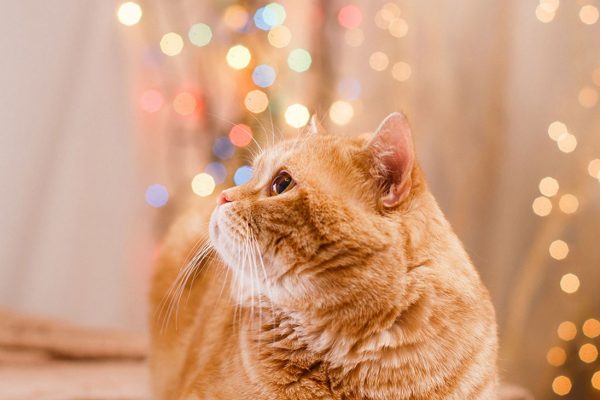Christmas festivities are the most eagerly awaited by all, a time to share, gather, celebrate and enjoy with our loved ones. There are as many ways to celebrate as people in the world: with friends or family, at home or abroad, near or far. For some, fireworks are an indispensable part of the celebration, but for others this can become a nightmare, generating fear, stress, palpitations, heart attacks and tachycardia in our pets, and in people with low tolerance to noise.
Compared to the human ear, dogs and cats have much more sensitive hearing, allowing them to hear sounds that are imperceptible to us, which is why thunder makes them so uncomfortable. Dogs and cats can hear ultrasonic sound frequencies (a frequency outside the human range), and can also locate the source of that sound. This is why noises coming from different directions frighten them, quickly disorienting them as well.
As such, animal behavior experts(*) say that the effects of firework explosions for our pets are comparable “to what happens to people who have been in bombing zones… we know these noises can cause physical damage, so we suffer with them, and the same is true for animals with the din of fireworks so common on these holiday dates”.
In desperation, dogs tend to break objects or try to leave the place where they are, and accidents may occur. Cats, in turn, usually hide. What is certain in both cases is that this represents major stress for them, so there is no wonder that more animals are reported missing during these festivities than in the rest of the year. Statistics suggest that during the holidays with the most use of fireworks in the United States (not Christmas, but Independence Day, July 4), 30% more pets are reported missing compared to the rest of the year. (Source: A Pet Amber Alert Blog).
Happy holidays for our pets as well
Fortunately, there are techniques and ways to help them in these situations that minimize the consequences; you can provide the peace of mind they need in the home to stay calm and not suffer from the noise.
María Belén Villar, Veterinarian, Head of Technical Communication at Labyes, offers detailed, useful tips to minimize the effects of fireworks on our dogs and cats:
- Take them for a walk a few hours earlier, which helps lessen their anxiety.
- Avoid leaving them tied up, as this usually just makes matters worse.
- Place them in a room in the house with the blinds lowered and dim light; remove objects that could hurt them and that you don’t want them to break. It is helpful to leave the radio on at medium volume or to a fan on, in order to “distract” them from external noises. Leave water available, and a litter box nearby for cats.
- Offer them balanced food in the afternoon, so they can eat in peace. Otherwise, some animals won’t eat at all because of the anxiety caused by the arrival of guests, noise or loneliness.
- If at home, check your pet from time to time and keep others from bothering them, especially children. Remember that a frightened animal can react badly and unexpectedly.
Identify your pet with a collar and tag (with phone number). This is helpful should they escape and get lost. - Always ask your Veterinarian about the use of sedatives, as doses vary according to weight, age and breed.
- Never use fireworks near pets.
* Fernando Catrina, veterinarian specialized in animal behavior. Source: www.comportamientoanimal.com

